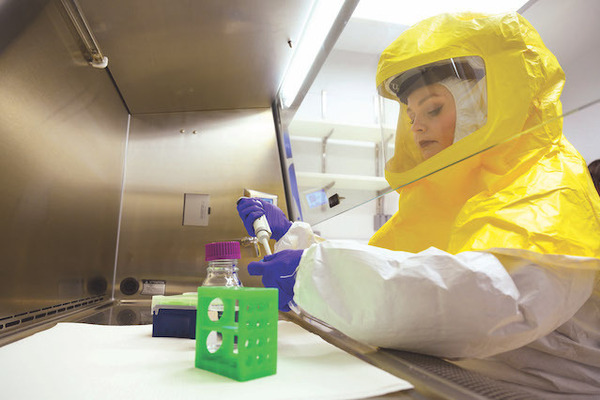ND Receives Record-Breaking $244 Million for Research
In 2014, in updating the University's 10-year strategic plan, Rev. John I. Jenkins, C. S. C., wrote, there are a number of outstanding colleges in this country that offer excellent undergraduate programs. There are a smaller number of institutions that combine brilliant undergraduate
education with world-class research. But there are no universities that have done what Notre Dame aspires to do: to become a preeminent research university, to offer an unsurpassed undergraduate program, and to infuse both with a religious and moral framework that imbues knowledge with the power to benefit human beings."
For nearly 10 years Notre Dame has focused on that goal, and the University is witnessing the fruit of its pursuit of meaningful research. In 2022, the University received a record-breaking $244 million in research funding, which spans 800 awards across the colleges and schools and supports work in 61 countries.
The largest award, $35 million, was given by Lilly Endowment Inc. for the University to expand its work pertinent to the regional challenges of

human and environmental health. Much of that work will take place within the expanding East Campus Research Complex, an extension of the current McCourtney Hall.
The National Science Foundation issued the next two largest awards: $7.5 million of an anticipated $25 million grant to establish Spectrumx, a wireless spectrum innovation center, and $2.5 million to the Department of Biological Sciences to identify new solutions for infectious disease control that impact both human health and sustainability.
The John Templeton Foundation and the U.S. Department of State also issued multimillion-dollar grants. The Templeton Foundation awarded $2 million to the Law School's Religious Liberty initiative, and a smaller sum to the Mendoza College of Business to launch Called to Flourish, a project tasked with exploring the role of religion in finding a calling and achieving happiness through work. The Department of State awarded the Pulte Institute for Global Development funding to look at the outcomes of gang resistance education in Central America.
In total, 44.2 percent of the funding was received from federal dollars, while 41.9 was received from foundations and other groups, and the remaining 13.9 percent was received from industry.
"Credit belongs to our talented faculty, who use this funding to help the university live out its mission to be a force for good in the world," said Robert J. Bernhard, vice president for research and professor of aerospace and mechanical engineering. Our researchers translate these dollars and cents into deeper understandings of ourselves and others and into new discoveries in global development, nanoelectronics, wireless technology and hypersonics research, to name a few that are improving lives around the globe.